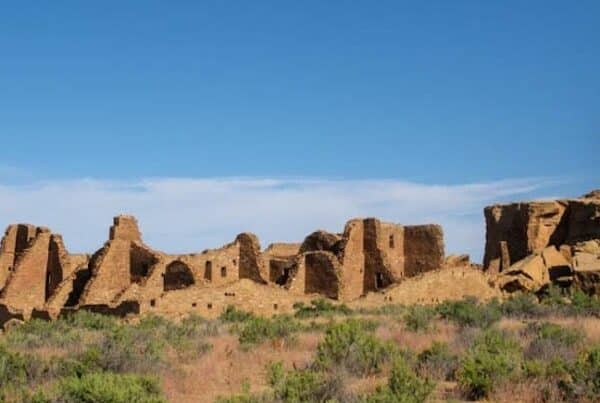Elections have consequences. Many are wondering what the just completed presidential election might hold for climate policy and action on reducing greenhouse gas emissions.
Our region has made much progress in cutting climate warming pollution. Colorado and New Mexico are national leaders in reeling in carbon dioxide emissions from electric generation facilities and in cracking down on methane pollution from the oil and gas industry. Additionally, market forces are driving the shift to cheaper renewable energy sources. That will continue regardless of the federal administration.
That’s not to ignore the fact that the prior Trump Administration was quite hostile to regulations at the federal level aimed at limiting greenhouse gas emissions, and downplayed the climate crisis. The incoming administration will likely again reverse America’s leadership role in international forums, such as abandoning international commitments to addressing greenhouse gas emissions. Interestingly, even Exxon’s CEO is calling on the Trump Administration to stay the course with international climate agreements.
For those in the Four Corners, we can expect to see continued progress in cutting our region’s contribution to greenhouse gas pollution while the transition to renewable electric generation continues or accelerates.
The shift away from burning coal to generate electricity is well underway throughout Colorado and New Mexico. Legislators in both states have adopted renewable portfolio standards that require utilities to achieve reductions in greenhouse gas emissions by 2030. For utility monopolies like Xcel or Public Service Company of New Mexico, regulators require the utilities provide lowest cost power to their customers, which has led to adopting electric power portfolios with larger amounts of cheaper wind and solar supplies.
As a result, PNM recently demolished the San Juan Generating Station, and the large coal plants across Colorado in Craig, Hayden, and Pueblo are all slated for retirement in the next five years by Xcel, Tri-State and other utility owners.
Tri-State just received almost $700 million from the Inflation Reduction Act that will allow it to accelerate retirement of its coal plants and reduce its associated debt.
Our neighbors in Kit Carson Electric Cooperative around Taos have shown the way toward cheaper, local, renewable energy sources. After exiting its contract for buying electricity form Tri-State’s coal dominated energy mix back in 2016, Kit Carson has since cut its energy costs by more than 30%, and its cooperative members pay less for electricity than any of Tri-State’s coops.
Methane emissions associated with oil and gas extraction are another primary contributor to climate change. Methane is 80 times more potent than carbon dioxide in driving global warming.
Both Colorado and New Mexico have adopted stringent rules to target methane leaks and intentional venting. At a federal level, the EPA and the Bureau of Land Management first proposed nationwide rules to similarly cut methane leaks and venting in the Obama Administration a decade ago. Those rules were reversed in the first Trump Administration, reinstated under Biden, and will likely be targeted again under a second Trump Administration. Eliminating methane regulations nationwide will be an unfortunate step back for climate action.
Every year, nature reminds us of the quickening consequences of climate change. In the Rocky Mountains, warming temperatures lead to less snowpack runoff, with obvious impacts to downstream water users. The warm waters of Gulf of Mexico created hurricanes this summer that intensified at unprecedented speed from tropical depression to Category 5 hurricane in just a couple of days.
Our region will continue to lead tackling greenhouse gas emissions. Fingers crossed that the nation’s efforts don’t fall too far behind.
This content was first published in the Durango Herald here.




